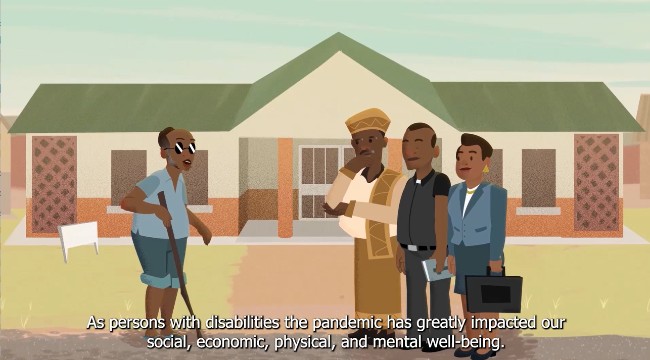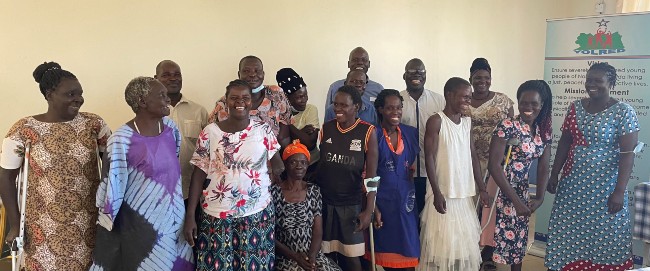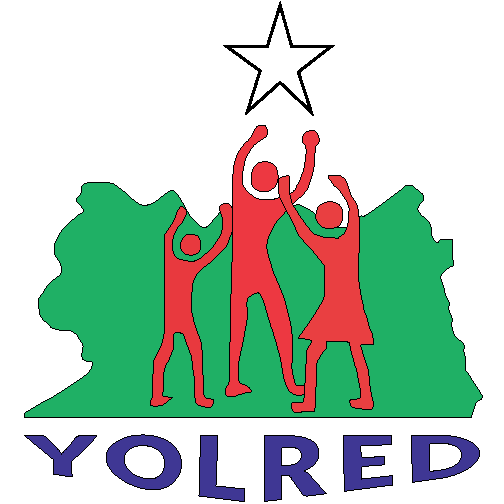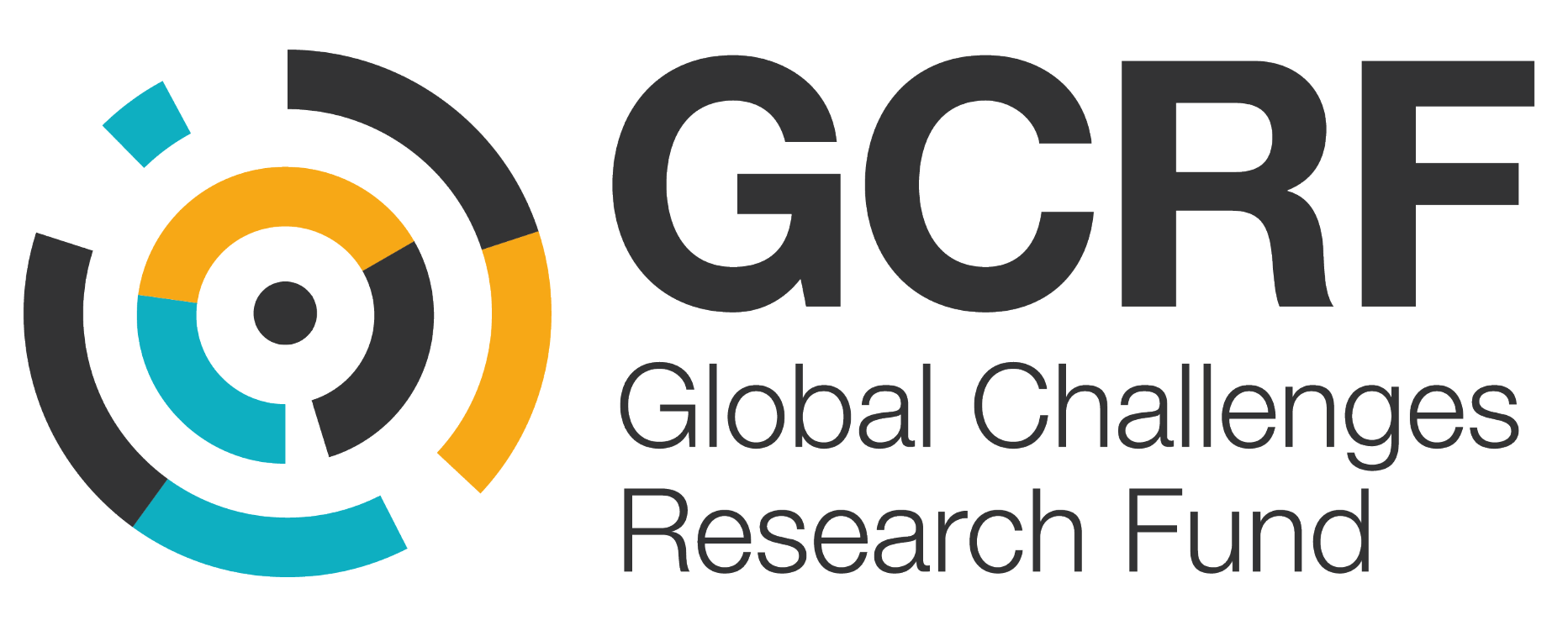The response to Covid-19 in Northern Uganda should be disability-inclusive

The threat of COVID-19 resulted in Uganda initiating a series of nationwide lockdowns and restrictions on movement between March 2020 and January 2022. Though cases of COVID-19 are low in comparison to other countries (167,000 cases and 3,626 deaths as of July 2022), people with disabilities experienced extreme neglect, marginalisation, and harassment due to a lack of disability-specific measures during the pandemic and lockdowns.
About the research
People with disabilities (PWD) make up 13% of the overall Ugandan population, though this is significantly higher in the war-affected North (approximately 18%). PWD in Northern Uganda have been severely impacted by the pandemic, both directly, i.e., contracting the virus, and indirectly, i.e., through the lockdown measures and mobility restrictions which resulted in socio-economic, physical, and psychological harms. Civil society organisations, including project collaborator YOLRED, have attempted to address these harms but their reach has been limited due to funding and organisational capacities. NGOs and community groups have reported that stronger national and regional level responses are critical for upholding Uganda’s commitments under the UN Convention on the Rights of Persons with Disabilities (CRPD), which Uganda ratified in 2008.
To address this, experts from the University of Bristol and Youth Leaders for Restoration and Development (YOLRED), a Ugandan community-based NGO located in Gulu, came together to implement a disability-inclusive and disability-led research project, which ran from June 2021-August 2022. This collaborative project assessed the impact of COVID-19 on disabled populations, including former child soldiers. This project utilised innovative participatory action-based workshops which were led by 16 PWD from Gulu, who became co-producers and co-researchers of this project. The findings and recommendations within this policy report have been developed by the 16 co-researchers to ensure disability-inclusive and disability-centred pandemic recovery solutions. The report calls for PWDs to be included in the decision-making process and planning of national post-COVID-19 responses, and in their implementation and monitoring where possible. It includes recommendations for academics and researchers, politicians and policymakers, and community members.
Key Findings
Basic needs:
Stringent lockdown measures resulted in loss of livelihoods and halts in income generation; with no financial assistance from the government, PWDs found themselves dealing with further financial hardships. Paying for basic necessities (i.e., food and rent) became a challenge. Healthcare needs of PWD were often disregarded within pandemic response measures; PWD also feared contracting COVID-19 in case they were unable to pay the medical bills. Treatment by service providers, i.e., healthcare workers, did not always take into consideration the additional needs of PWDs, particularly around disability-friendly access to the hospitals. School closures and interruptions in education created further challenges for PWDs who needed to find additional food, educational alternatives, and resources for their children, whilst often lacking the technology/internet services that online schooling required.
For a fuller picture of the situation, see animation.
Human rights:
Restrictions on mobility resulted in an increase in human rights violations. Police and security personnel who were monitoring adherence to lockdown restrictions were particularly authoritative and intimidating, making it difficult for persons with disabilities (who had special permissions to travel during this period) to move freely without fear. There was also a reported increase in other human rights violations against PWD, for example domestic violence and abuse.
“Movement has become difficult; even if they say people with disabilities are free to move and they can be carried but still find that the security personnel (police and the army) will stop you asking for letter of permission to move though are disabled.” (co-researcher, woman, 25)
Social exclusion and marginalisation:
PWDs reported adhering strictly to the special operating procedures (SOPs). Reasons for which were twofold: 1) being considered ‘higher risk’ as PWD and recognising that the virus would have greater consequences for them and 2) to avoid additional community stigma for not adhering to SOPs and placing others at risk. The social stigma and marginalisation faced by PWD pre-COVID, which impedes their full and inclusive participation in society, intensified and widened due to fears of them being a high-risk category, and more susceptible to contracting and spreading the virus. PWD experienced disempowerment, trauma, and isolation due to these various forms of exclusion.
Community relationships:
PWD reported feeling greater social isolation during the nationwide lockdowns. Though this was not exclusive to PWD, they felt that, prior to the lockdowns, they had the support and care of their community and neighbours. Due to accessibility issues and additional needs, PWD acknowledged that they had a greater reliance on others and being deemed higher risk and more susceptible to contracting the virus, this reliance was amplified. Some noted that community members would sympathise with them and offer support where they could, but this was limited and became restricted as non-disabled people also began feeling the socio-economic impacts of the pandemic.
Co-researchers reported feeling greater unity and togetherness through this project and recognised the importance of organising as a group, benefits of which are threefold: 1) that they are stronger as a collective, 2) that friendships, networks, and solidarity can be gained from doing so, and 3) their collective voice is vital for organising and lobbying.
“Life is hard because when I got corona, nobody wanted to be with me and I was left [alone] since they would say “That person with disability has corona, don’t go near her”. (co-researcher, woman, 19)
Government and civil society response:
Government support was reported as being limited, sporadic and challenging to obtain; where it was received, it was difficult to decipher whether it was disability-specific or for the general population. Some PWD were also not able to access such support due to mobility issues.
Disability-specific needs and inclusion:
PWD have additional needs and specific requirements which became amplified during the pandemic, for example, needing to obtain information about the pandemic in accessible formats (i.e., in sign language, through audio, in braille etc.). PWD also required specific services and support targeted for them, i.e., more at home healthcare visits. Pregnant PWD, for example, faced greater challenges and difficulties as a result of the additional barriers (disability, limited mobility options and stretched healthcare services).
“By the time PWDs were being called to get the support, myself who is blind did not [receive anything] because by the time I reached there nothing was left. So I did not get anything but we sent in our plea that next time if there is such support to be given, we request it to be given door to door to favor the PWDs.” (co-researcher, man, 58)
Recommendations
PWDs should be included in the decision making and planning of national COVID-19 responses, to ensure they are disability-inclusive, and in the implementation and monitoring where possible.
Across all public sector institutions in Uganda, to address fundamental systemic issues:
- Pandemic recovery policies and programmes must be disability-inclusive and inclusive of PWD voices, especially those initiatives which are focused on basic needs and services (i.e., socio-economic, health, and cultural services)
- Representation of PWD in all political and policy-making bodies, so that their specific post-COVID-19 needs are featured
- Reduce stigma against PWDs by implementing and maintaining anti-discrimination policies and practices
Healthcare workers and medical professionals can support by assisiting with:
- Free healthcare for PWD and more frequent check-ins, which could be facilitated through community healthcare workers and localisation of healthcare
- More training provided to healthcare workers on disability-related needs and sensitive approaches for when dealing with disabled populations
- Better access to healthcare and medical services by providing free transport facilities or at-home visits
Local and national government should support by providing:
- Affordable housing and accommodation which is disability-friendly
- Food relief and sustenance provision
- Livelihood support and economic empowerment
- Education provision for the children of PWD
- Removal of taxes for PWD during the post-pandemic recovery period
- Stronger laws against domestic and gender-based violence against PWD
- Accessible information and communication to PWDs regarding COVID updates
Police and security personnel:
- Police and security personnel should not harass PWDs when they are travelling (i.e., asking for permission letters)
- Police should understand PWDs have different needs and communicate in ways that are accessible to them
- Treatment of PWDs in prisons needs investigation and attention, especially during and post-COVID-19 when more PWD are susceptible to imprisonment
Local religious leaders and cultural institutions can support by:
- Consoling PWDs and offering emotional and spiritual support
- Sensitising community on issues related to PWDs and COVID-19 to reduce stigma and exclusion
- Advocating/lobbying for the rights of PWDs to the wider public and to higher authorities
- Teaching non-disabled people about the harms of gender-based violence in relation to PWDs
Academics/researchers who are working with people with disabilities:
- Research institutions should conduct research on matters related to PWDs which are inclusive of PWD and publish findings widely in accessible formats
- Researchers and scholars to use more participatory approaches when researching COVID-19 and PWD concerns
- Outputs should be translated into local languages or accessible to local and national stakeholders
- Local impact agendas to be prioritised where possible, particularly within North-South collaborations (to reduce potential harm to local groups and maximise benefits for those communities being researched)
- More access to the research findings for disabled populations in accessible formats (i.e., radio dissemination, sign language interpretation etc).

Co-researchers of the project, Gulu (Uganda)
Case study
“COVID-19 has brought so many problems. I am a student and schools have been closed and so there is no more education. Secondly, the other huge problem is hunger because the way of generating household income has reduced and in other cases completely halted; for instance my mum is a teacher and the money she gets to pay for my school fees and for food comes from her teaching and as schools have been closed and there is no teaching, there is greater hunger. The other one is means of transport, movement has become difficult even if they [authorities] say people with disabilities are free to move and they can be carried [transported] but still we find that the security personnel (police and the army) will stop you asking for permission letters to move, even though you are disabled.”
(co-researcher, woman, 29)
Methodology
The project was led by 16 persons with disabilities living in Northern Uganda who were employed as co-researchers and co-producers of this research, and thus became part of the project team. Co-researchers were selected through YOLRED, and based on those that had been severely impacted during the pandemic and thus were most in need of support. Co-researchers were aged between 19-70 and comprised of 12 women and 4 men; a greater proportion of women were included to support Sustainable Development Goals 5 (gender equality) and 10.2 (reduced inequalities). The project team worked together to provide new evidence to produce a disability-specific and inclusive situational analysis for Northern Uganda, which addressed the needs of persons with disabilities who have largely been excluded from pandemic safety and recovery measures. Co-researchers, rather than being participants of this project, held temporary contracts issued by YOLRED – making them an integral part of the research team. They worked on this project from July 2021 to August 2022, which included a series of data collection workshops, planning dissemination events, and attending and participating at civil society outreach activities, and the stakeholder meetings. All co-researchers and project team were paid the same during the data collection and dissemination workshops, to ensure an equitable distribution of resources.
“We have attended so many workshops as persons with disability but out of all the workshops, this one has given me some hope.” (co-researcher, woman, 36)
Research Team
Co-researchers (Uganda): Abwol Concy, Acan Christine, Acan Jennifer, Ageno Nancy, Ajok Harriet, Akena Jimmy Obong, Akulu Everline, Aloyo Jennifer, Alwoch Anna, Aneno Margret, Atoo Christine, Atoo Lucy, Lakwonyero Denis Ocen, Lamunu Lona, Oceng Francis, Opiyo Daniel
YOLRED (Uganda): Omony Geoffrey, Alaroker Diana, Kisembo Collins, Owor Arthur, Abalo Joyce
University of Bristol (UK): Dr Jassi Kaur Sandhar, Prof Rachel Murray
Acknowledgements
This project took place under the Human Rights Implementation Centre, at the University of Bristol Law School. This work was supported by the Arts and Humanities Research Council [grant number AH/V013432/1] as part of the Global Challenges Research Fund. This project is part of a wider network of 8 AHRC-funded GCRF projects on COVID-19 and disability in Low- and Middle-Income Countries.
Policy Report 81: Dec 2022
The response to Covid-19 in Northern Uganda should be disability-inclusive (PDF, 548kB)


